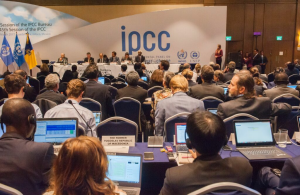Sink or Swim? Given the political reality of climate change policy, what do we do now?
The environmental community at the international level and here in Washington DC is coming to terms with failure. It is well accepted that global action to address greenhouse gas emissions …
Read More
